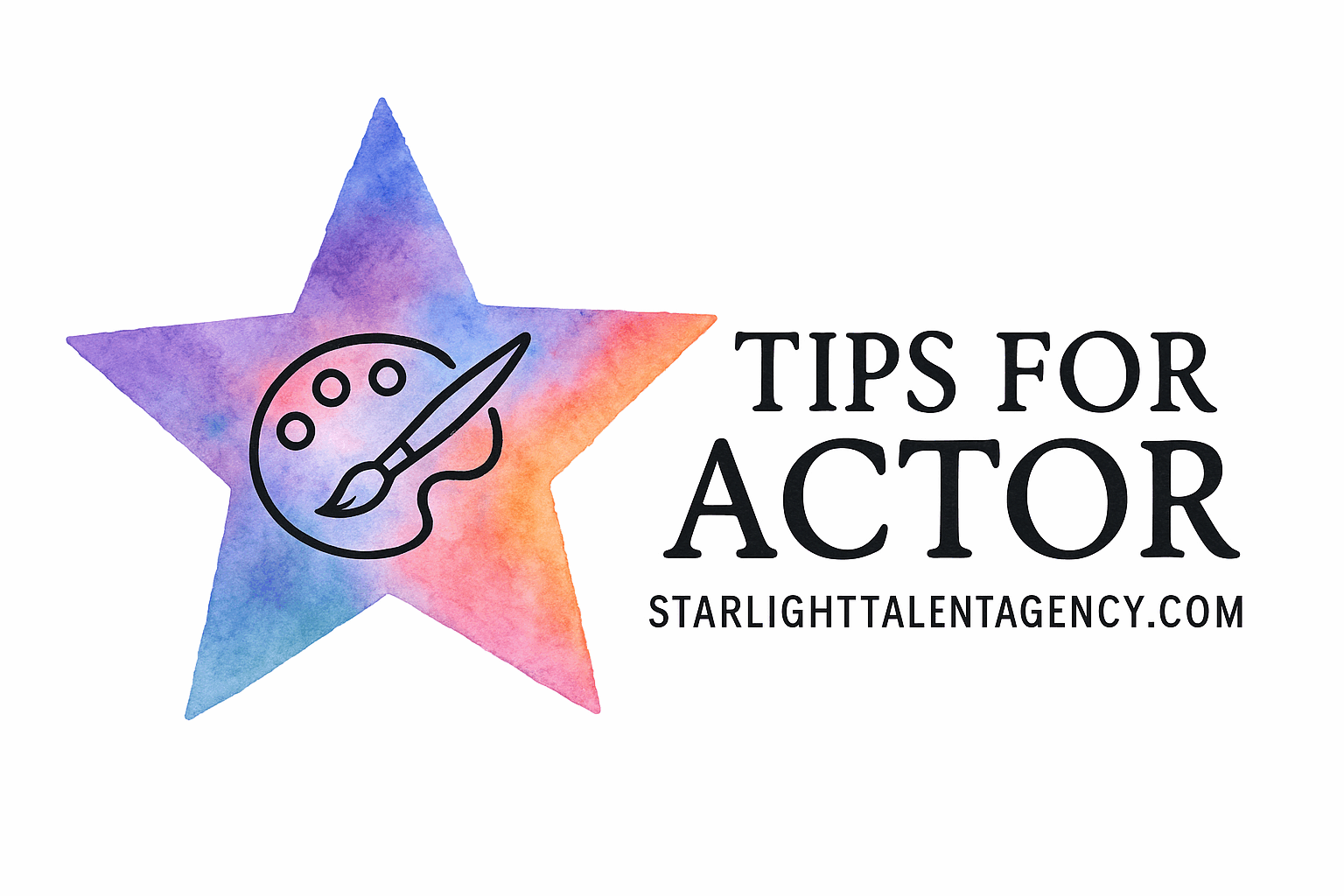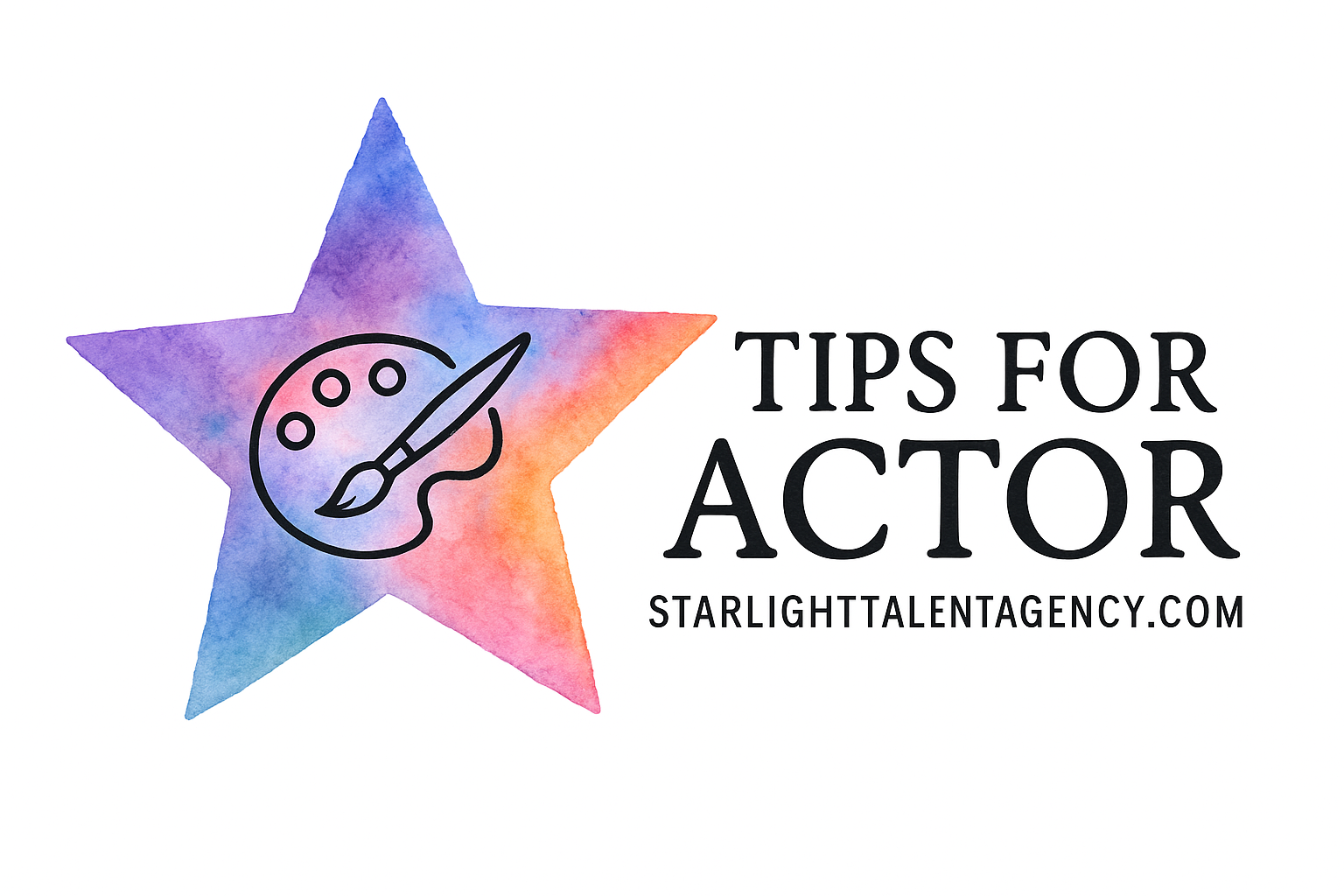Introduction
Building an acting resume can feel intimidating—especially if you’re just starting out. But here’s the secret: every professional actor started with a blank page.
Your acting resume is more than a list of credits—it’s your story of growth. Whether you’re preparing for your first big audition or refining your materials for your next agent submission, these 9 coaching tips for actor building an acting resume will help you stand out with confidence and clarity.
To go even deeper into performance prep, check out Audition Preparation Basics and Advanced Audition Skills.
Why Your Acting Resume Matters
First Impressions Count
Your resume is your first audition—on paper. Before you even walk into the room or send your self-tape, casting directors get a sense of who you are by reading it. A clean, professional resume tells them, “I’m ready for this industry.”
Want to make that first impression shine? Strengthen your confidence with tips from Acting Confidence.
A Resume Is More Than Just a List
Think of your resume as your movie trailer—it should tell a story about your growth, your range, and your professionalism. A resume that reflects your journey helps casting directors see potential, not just past roles.
Tip 1: Understand What Casting Directors Look For
Tailoring Your Resume for Each Audition
Just like you adjust your monologue for different roles, you should customize your resume based on the audition. Highlight your most relevant credits. If you’re auditioning for a comedy, showcase projects where your timing and humor shined. For drama, highlight emotionally rich performances.
Need more insight? Explore Taking Direction to better align your presentation with what directors expect.
Highlighting Key Experience and Skills
Keep your best work front and center. Casting directors skim fast—make sure your name, contact info, and top roles pop. Organize clearly with bold headers like Film, Television, Theatre, and Commercials.
Learn how to elevate your on-screen presence through On-Camera Acting.
Tip 2: Start with What You Have
Using Training and Workshops
Even if you’re new, you’ve got more experience than you think. List workshops, acting classes, or training sessions you’ve completed. These show commitment to learning—something every casting director respects.
Browse Coaching Tips for Actor Development for ongoing growth ideas.
Including Student Films and Community Theater
Student films, community theater, even local commercials—they all count. Every credit reflects your dedication and time spent in the craft. Don’t discount small projects—they often lead to big breakthroughs.
Learn how to bring authenticity to those early performances with Character Development.
Tip 3: Focus on Training and Education
Acting Classes That Make a Difference
The most impressive resumes show ongoing training. Include acting schools, coaches, and methods you’ve studied—like Meisner, Stanislavski, or on-camera techniques.
Not sure what’s worth listing? Explore Acting Prep to see which courses add credibility to your resume.
Mentorship and Coaching Insights
Working with a mentor or coach not only hones your craft but also looks great on your resume. It shows you value professional feedback and constant improvement.
Enhance your technique with resources from Coaching Tips for Actor Growth.

Tip 4: Showcase Versatility on Your Acting Resume
Emphasizing Range and Character Diversity
Directors love flexibility. List roles across different genres to show your range—whether you’ve done comedy, drama, or voiceover.
Boost your adaptability through Acting Flexibility.
Using Categories to Structure Your Experience
Break your resume into clear categories:
- Film
- Television
- Theatre
- Voiceover
- Commercials
This organization helps casting professionals quickly scan what matters most. Structure is part of professionalism—just like good Scene Work.
Tip 5: Keep It Clean and Professional
Formatting Your Resume for Maximum Readability
Simple beats flashy. Stick with legible fonts (Arial, Calibri, Times). Use consistent spacing, alignment, and bullet points. Leave plenty of white space—it helps readability.
Pair your resume with digital tools like Self-Tape Mastery to ensure your submission looks polished.
Common Resume Mistakes to Avoid
Avoid including:
- Personal details (like your age or home address)
- Overly creative fonts
- Old or irrelevant roles
Clarity builds credibility. For more structure tips, visit Acting Resume.
Tip 6: Include Special Skills and Accents
Adding Physical and Vocal Skills
Your “Special Skills” section is where you stand out. List accents, athletic abilities, musical talents, or performance skills that add character depth.
Get expert insights from Dialect Training and Body Acting to refine your craft.
How to Keep This Section Relevant
Only include skills you’re currently confident in. Casting directors may ask you to demonstrate them on the spot! Stay authentic and up-to-date by revisiting Warm-Up Exercises regularly.
Tip 7: Keep Your Resume Updated
Reviewing After Every Project
Your resume is a living document. Add new roles, workshops, and training immediately after each project. The fresher it is, the more reflective it becomes of your current skill level.
Using Online Acting Portfolios
Create a digital version of your resume with clips and self-tapes. Platforms like Self-Tape Acting and Career Growth offer tips to maintain a strong online presence.
Tip 8: Combine Resume with a Strong Headshot
The Resume–Headshot Connection
Your headshot is the face of your brand; your resume is the proof behind it. Together, they make a powerful introduction.
Ensure your presentation aligns with insights from Acting Wardrobe and Stage Presence.
What Makes a Headshot Stand Out
Invest in a professional photographer who understands actors. Avoid filters or selfies. A good headshot captures your essence, not just your appearance.
Need self-taping advice? Visit Self-Tape Setup.
Tip 9: Seek Feedback and Coaching
Working with Acting Coaches
A coach can spot what you can’t. They’ll help refine your skills, edit your resume, and prepare you for upcoming roles. Regular sessions keep your craft sharp and your confidence strong.
Find trusted mentors through Coaching Tips for Actor Development.
Continuous Improvement and Growth
Every performance, audition, and rejection builds resilience. Use feedback as fuel. Acting is an evolution—there’s no finish line.
Stay motivated by exploring Career Mindset and Career Advice.
Conclusion
Building an acting resume isn’t just about listing jobs—it’s about crafting your professional identity. Start with what you have, refine it over time, and never stop learning.
Your resume should grow with your experience—each credit, class, and self-tape is another brick in your foundation. Pair that with dedication, good coaching, and consistent self-improvement, and you’ll be ready for any opportunity that comes your way.
Want to take your next big step? Visit Starlight Talent Agency for guidance on training, auditions, and career advancement.
FAQs
1. How long should my acting resume be?
Keep it to one page. Simplicity and relevance always win.
2. Can I include unpaid or student work?
Yes! Every project helps build credibility and experience.
3. How often should I update my resume?
After every project or class. Stay current and accurate.
4. Should I include my photo on the resume?
Your headshot should be attached separately, not embedded.
5. How can I make my resume stand out digitally?
Combine it with a polished self-tape and Online Acting Portfolio.
6. Should I list my height and weight?
Yes, but keep it subtle and professional—just basic casting info.
7. What’s the most important section on an acting resume?
Training and experience. They tell casting directors how prepared you are for the role.

